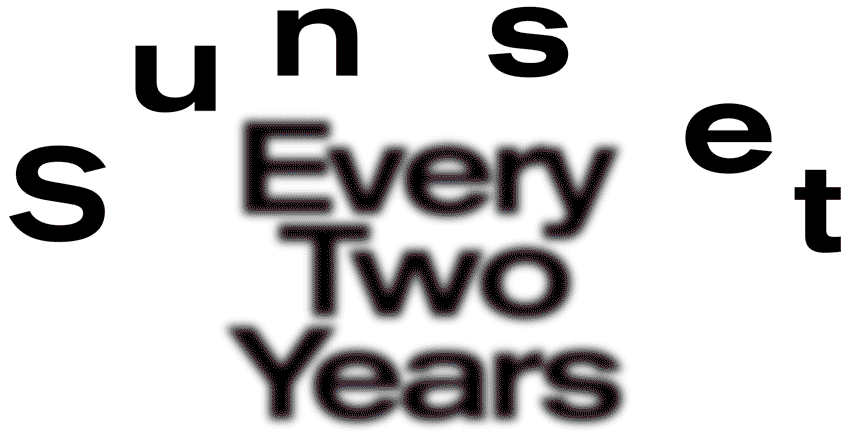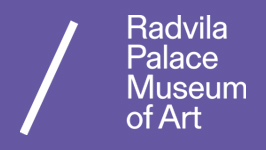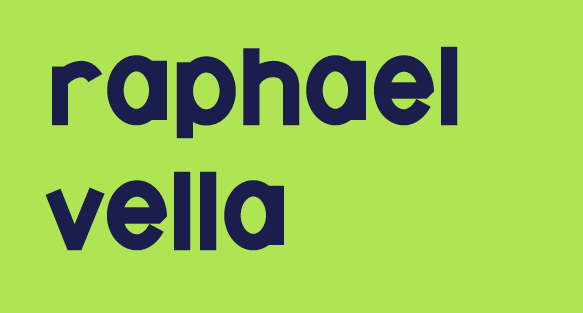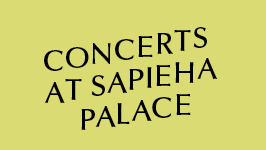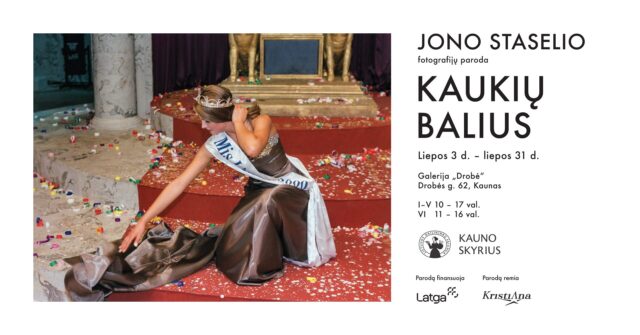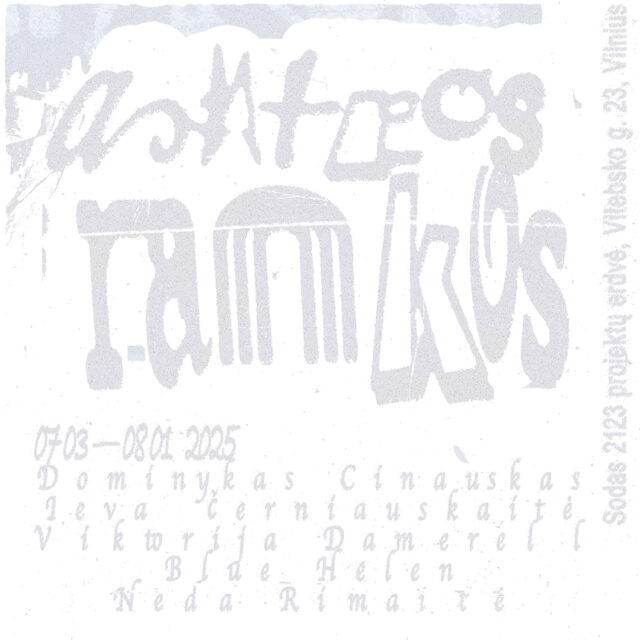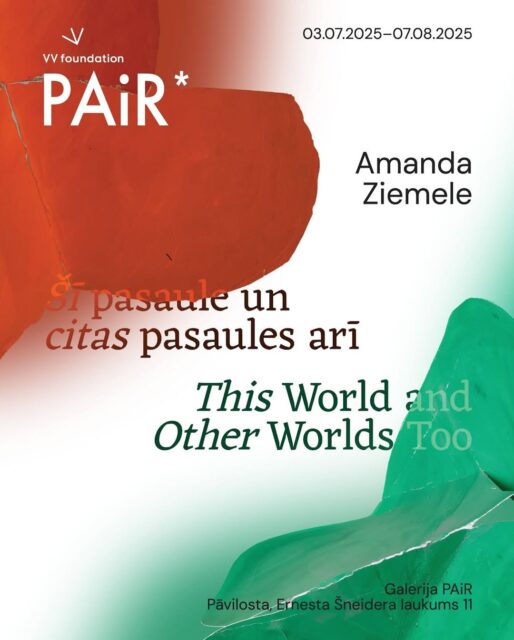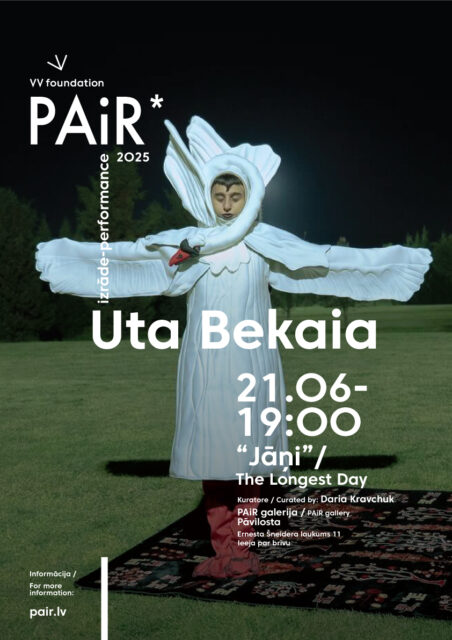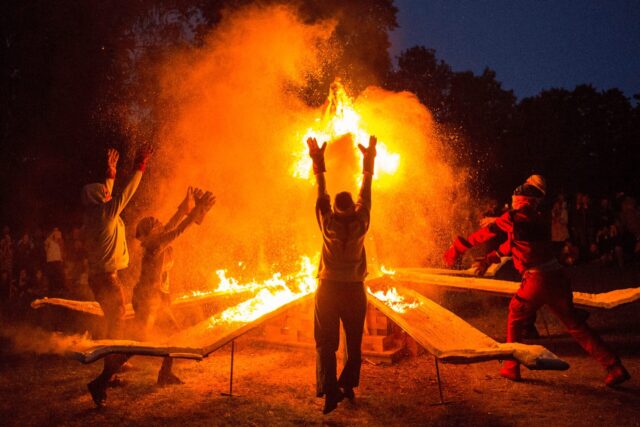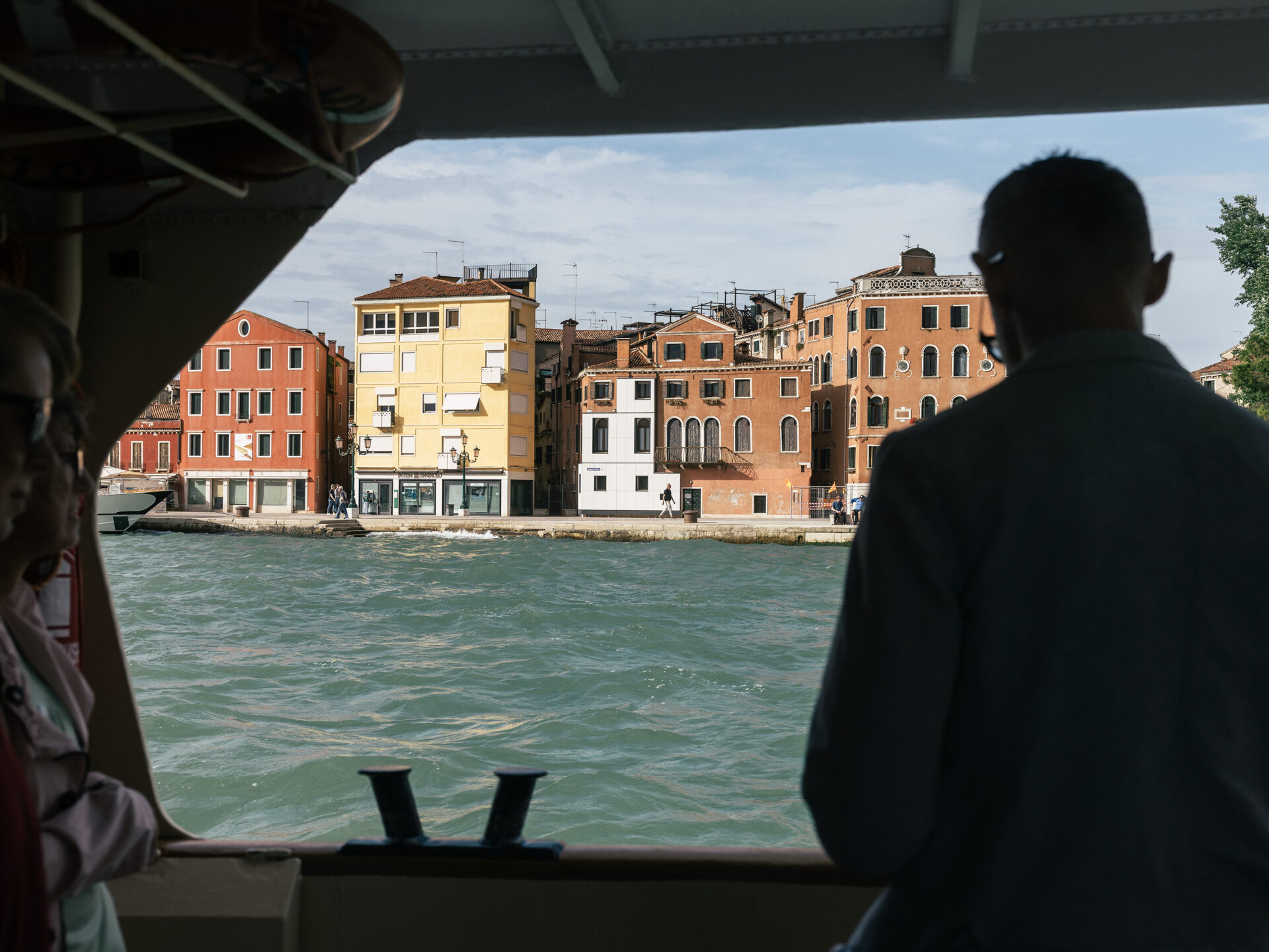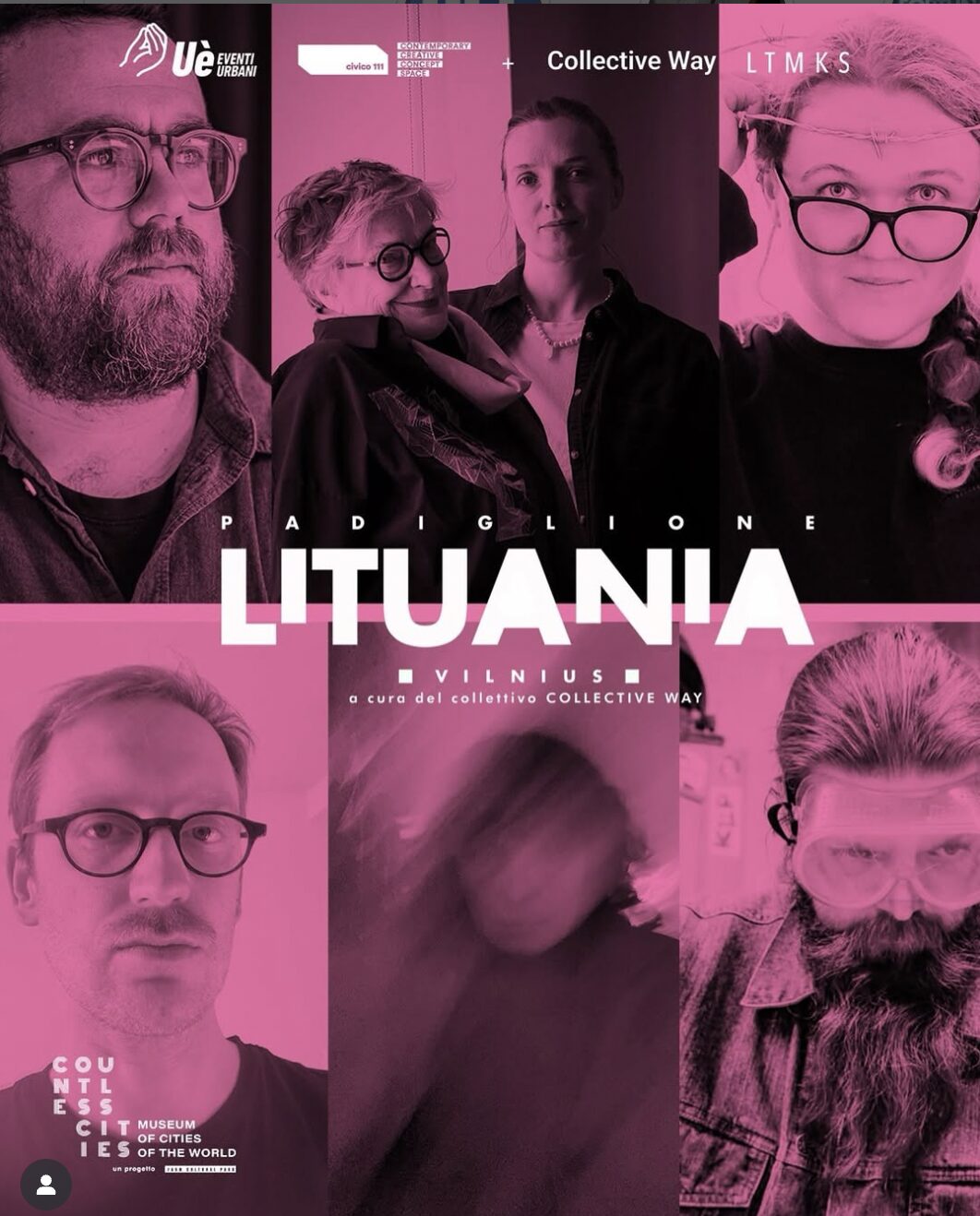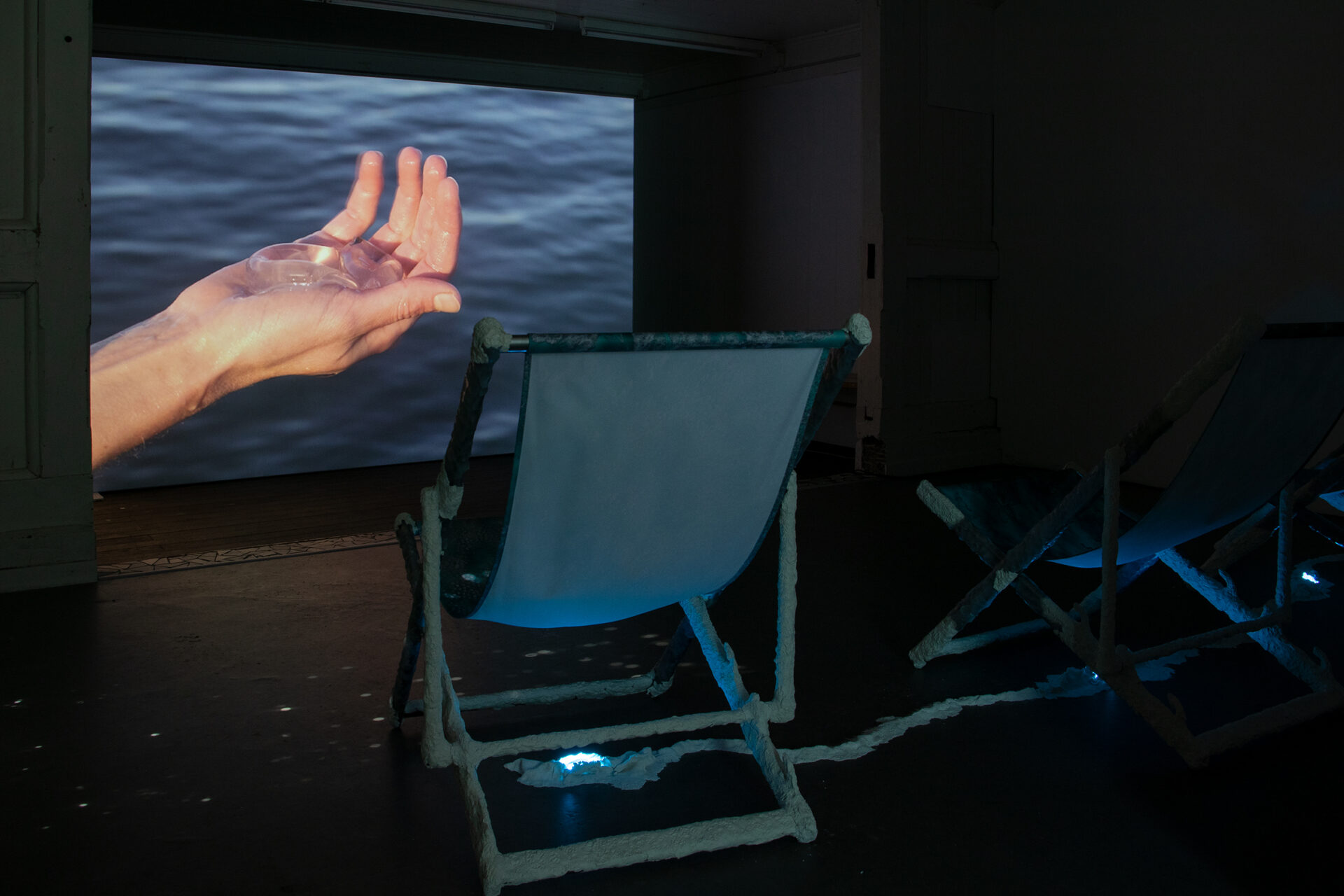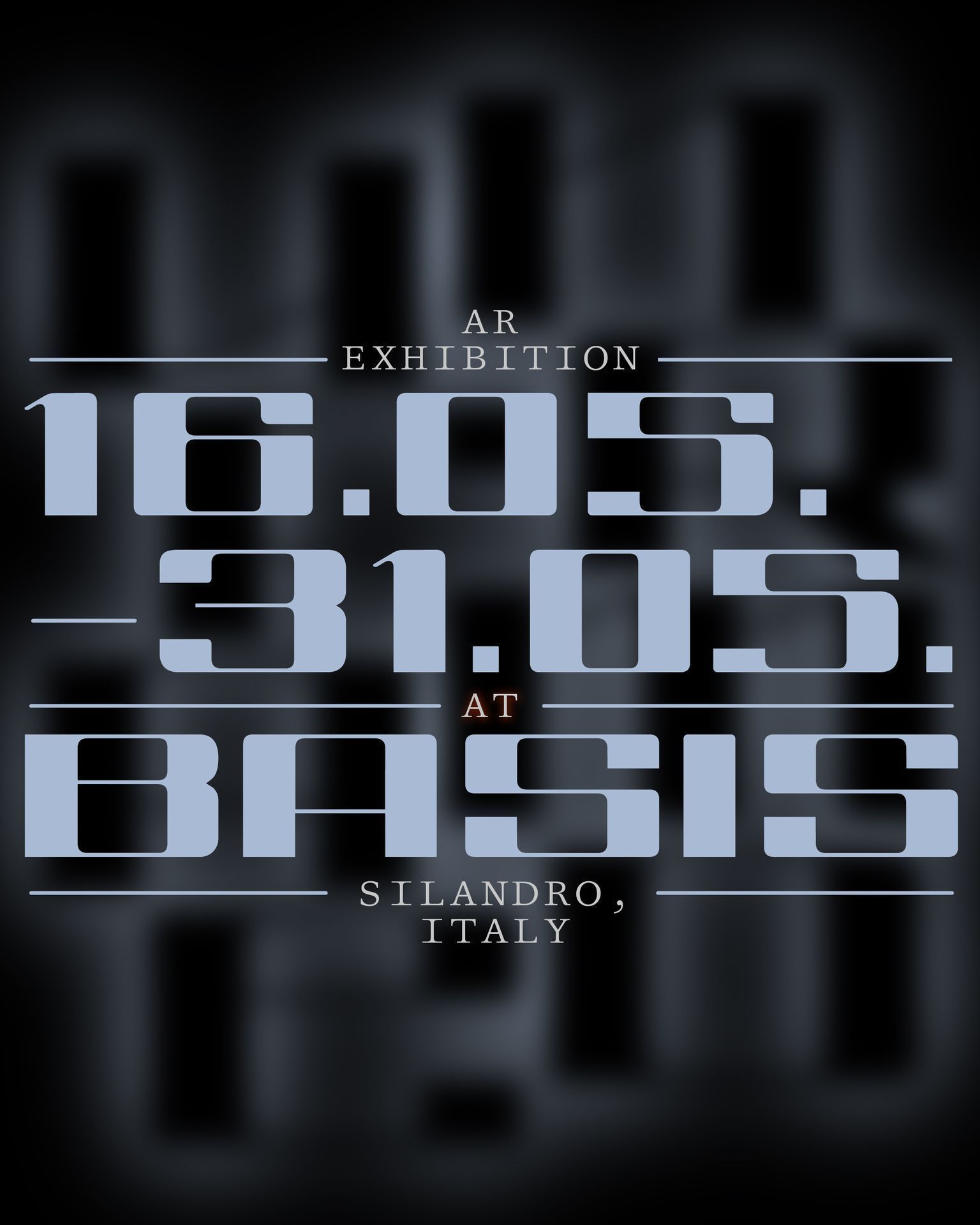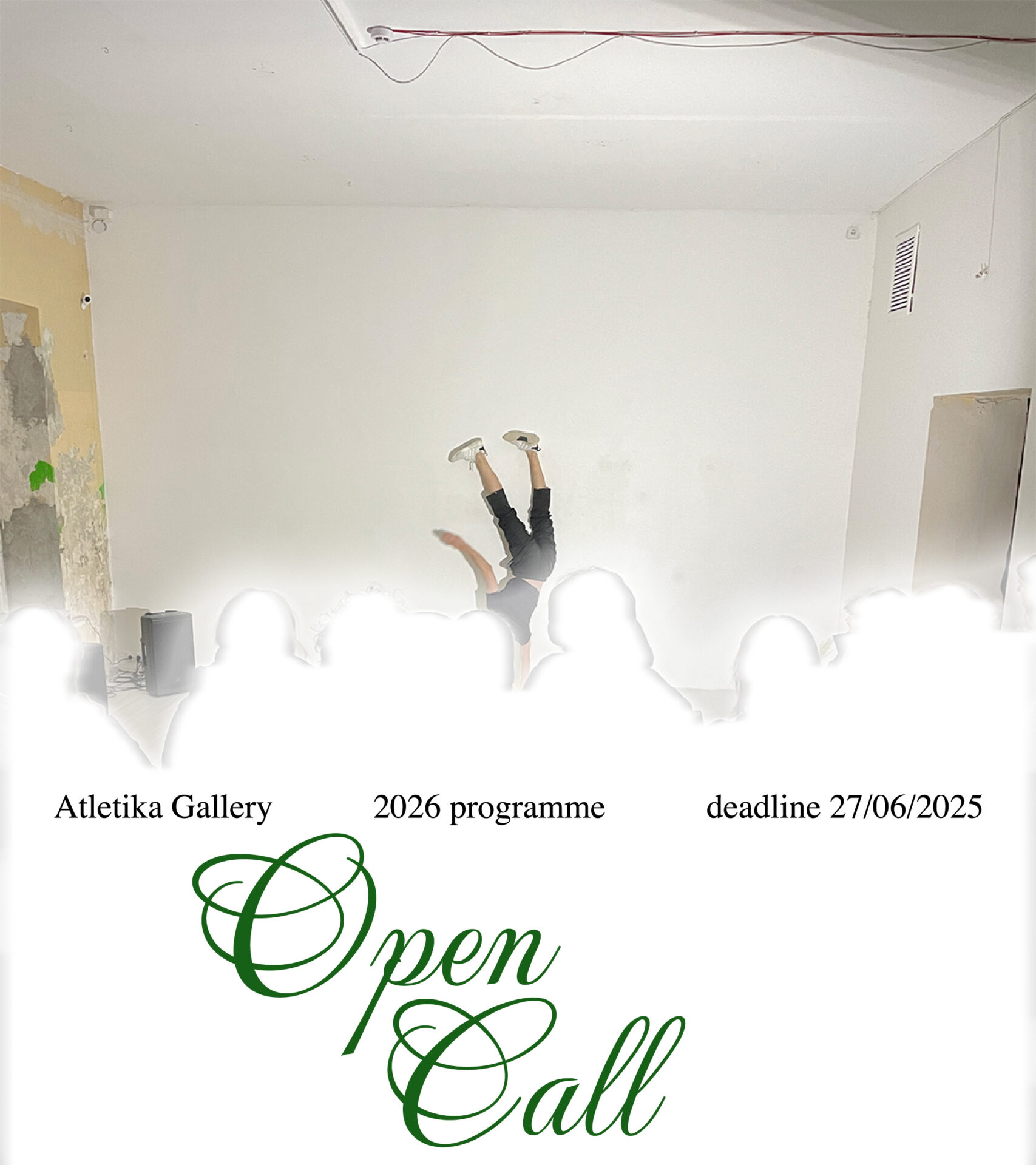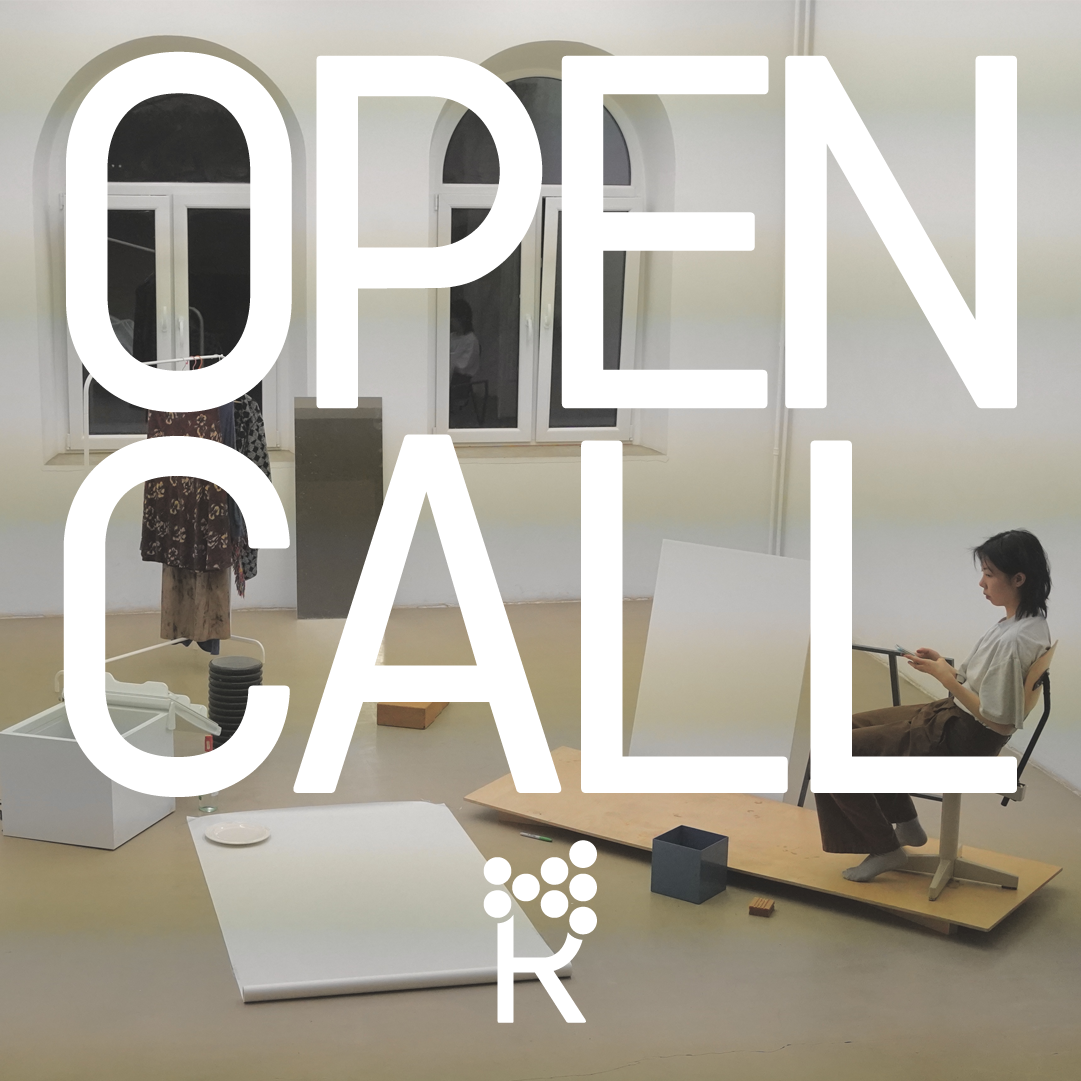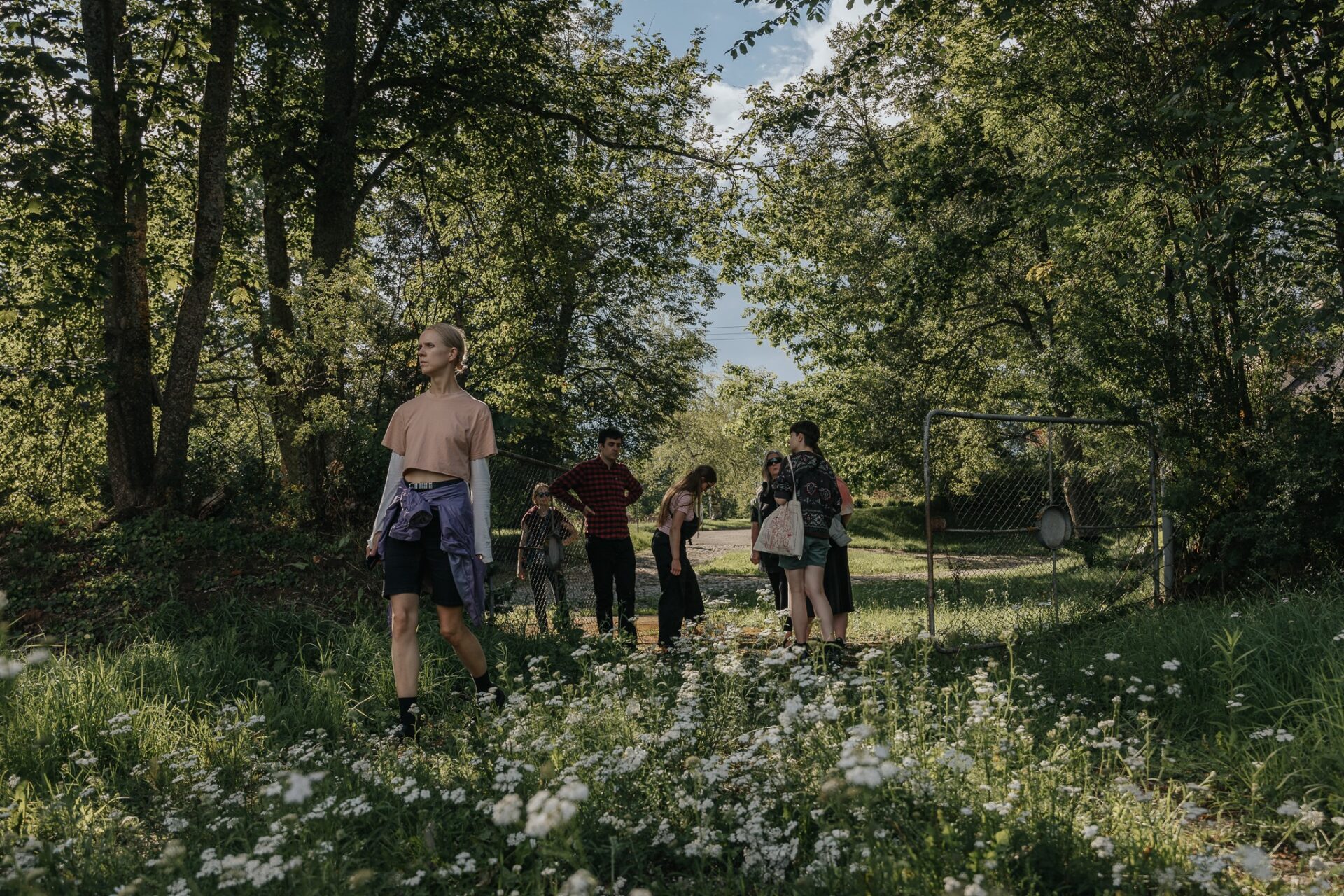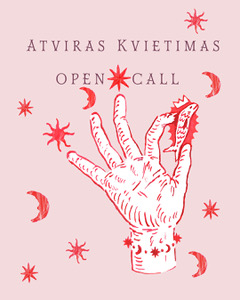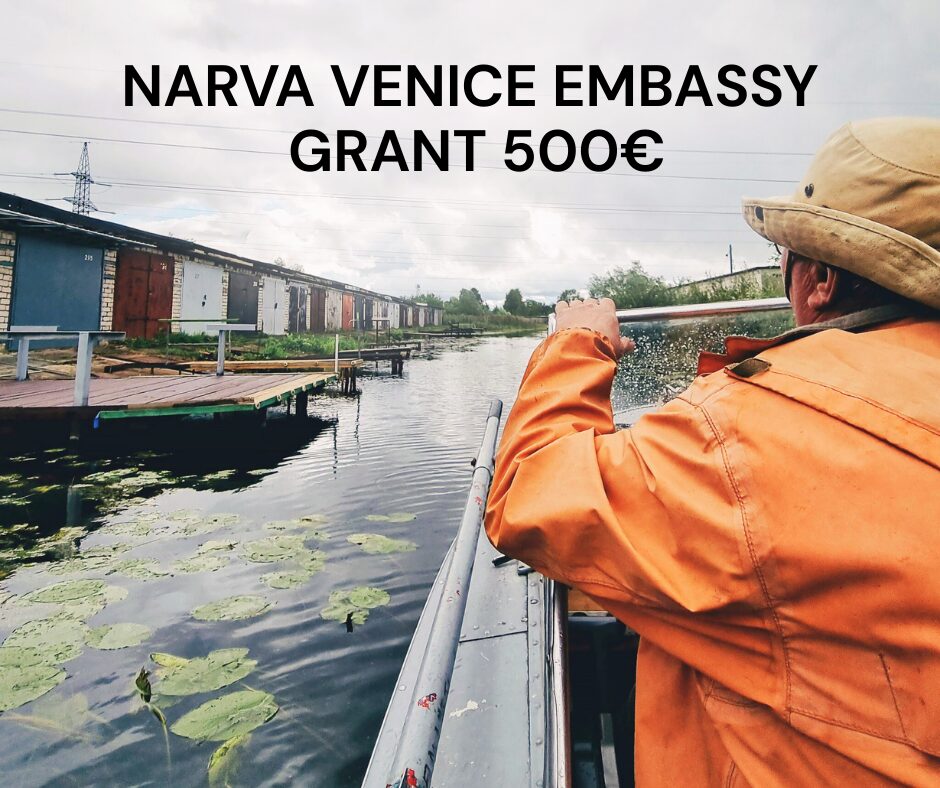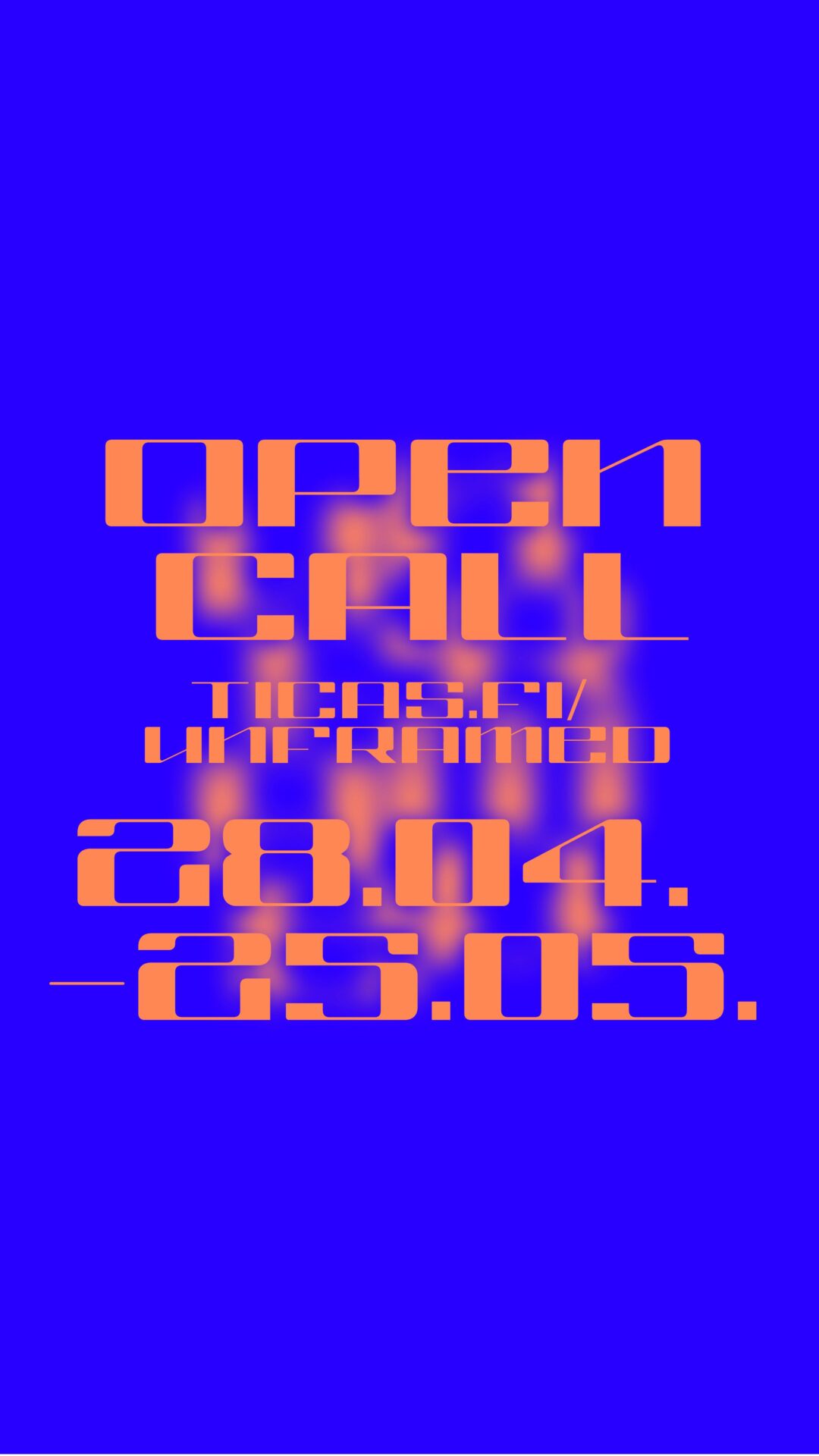Some exhibitions are gestures, some are like poems, and some are encyclopedias. ‘Decolonial Ecologies. Understanding Postcolonial after Socialism’ at Rīga Art Space felt like a theoretical proposition. Therefore, in elaborating on my experience at the exhibition, I will focus on some of the connections that arise between the artworks on show. There is something upsetting about this type of review, since it pursues ideas conjured up by the artworks, while undeservedly neglecting the embodiments of them; but I will take up the appeal included in the exhibition’s title to make an effort to ‘understand the postcolonial after socialism’.
Decolonial thought has been inhabiting the humanities, art spaces and biennials for at least a decade now, subjecting the relationships between the Global North and the Global South to critical scrutiny. Likewise, efforts to inscribe the period of the Soviet occupation in the discourse of decoloniality have been going on for quite some time, albeit at a drip-like pace; but ever since Russia’s attack on Ukraine, this has turned into a downpour. The war has once again brought the issue of the East European identity to the fore, an identity that had otherwise become somewhat inconvenient. The war has also knocked the rose-tinted glasses off the noses of those who until now had a favourably clouded view of Russia’s Imperial nature.
‘Decolonial Ecologies’ is curated by Ieva Astahovska, who has had a longstanding and deep interest in the recent past of our region, resulting in a series of studies, symposia and exhibitions. That is why it is even more interesting to see in her most recent work how the ‘decolonial turn’ is generating new approaches to the present and the past of the region, as well as whether, and in what way, this would amount to something more than merely presenting a new conceptual framework for approaches and intonations that are already known. Decolonial thought, as opposed to memory studies, for example, leads more organically to considering a wider circle of actors, with the result that Europe and our adherence to the Global North definitely start haunting the usual dichotomy of the Soviet occupation/occupied societies.
Through a rich array of works, ‘Decolonial Ecologies’ speaks about the scars that occupation and colonisation have left on ecosystems and the relationship between humans and nature. Geographically, the works are mainly focused on the experience of the East European region. Chronologically, it is mainly about the consequences of the Soviet occupation and the ongoing war in Ukraine. Essays and paintings by Haralds Matulis make a connection with ‘the colonial in Europe’, considering ambivalent situations from Latvia’s point of view. Matulis contemplates how Latvia’s history of oppression coexists harmoniously with nostalgia for the ‘Latvian colony’ of Tobago. He pointedly observes that, in the minds of Latvians, Poland is a ‘vast nowhere land that has to be crossed in order to reach the promised West’.
The history of colonisation is addressed directly by the Family Connection collective, whose ensemble of works speaks about the colonial history of Curaçao, and how it is felt in the present. The works comment on slavery, the local Marxist-inspired labour movement, and the relationship between local people and nature. The colonial history of Curaçao has no direct links with East European experiences, and the attitude towards socialism is likewise different. Nevertheless, the presence in the exhibition of stories from Curaçao introduces the visitor not only to specific histories, but, by bringing testimonies of Europe’s colonial past into the space, also provides new contexts to works addressing the consequences of the Soviet occupation.
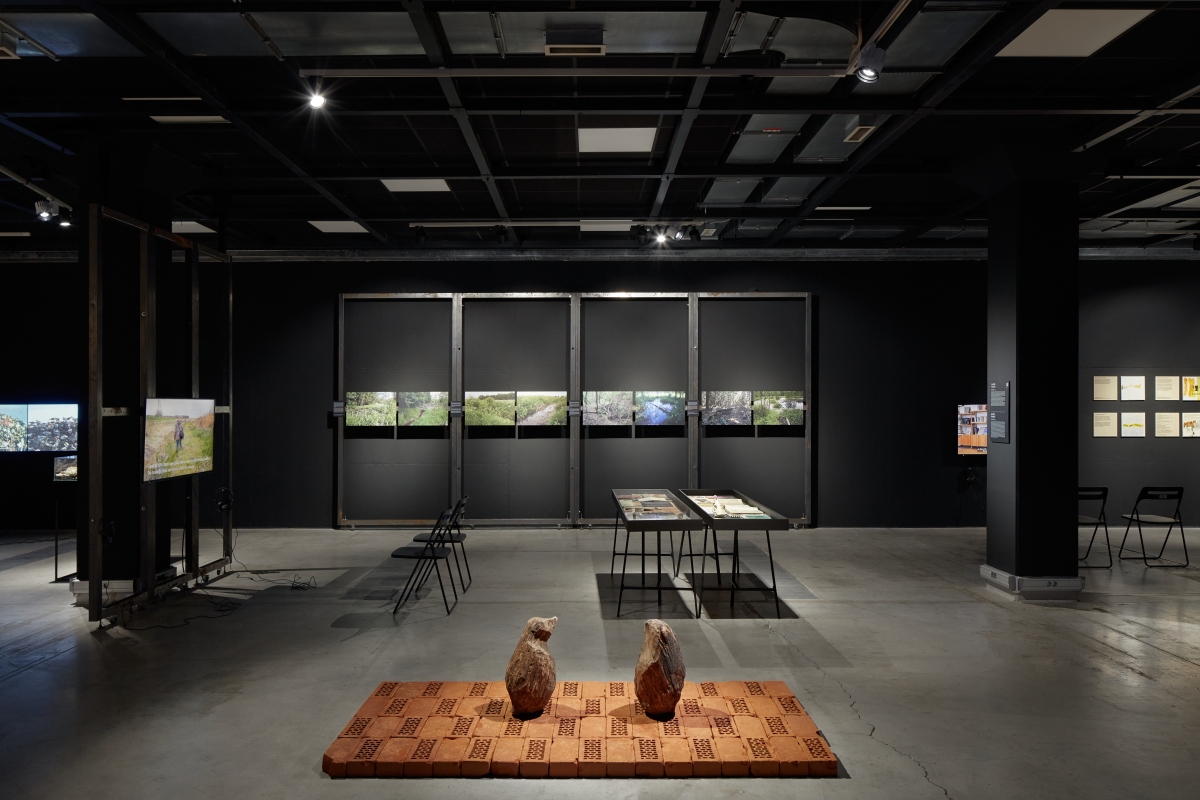
Aurelija Maknytė. ‘Decolonial Ecologies’ at Riga Art Space. Photo: Madara Kupla

Aurelija Maknytė. ‘Decolonial Ecologies’ at Riga Art Space. Photo: Madara Kupla

Aurelija Maknytė. ‘Decolonial Ecologies’ at Riga Art Space. Photo: Madara Kupla
Aurelija Maknytė’s series of works ‘Partisan of Landscaping’ addresses the cultural history of land reclamation, articulating the way landscapes and ecosystems were changed (i.e. ruined) by practices of collectivisation during the Soviet era, such as straightening rivers and draining fields through the use of systems of ditches. The beaver is an important character in the multimedia installation, heralded as a partisan that, slowly but surely, restores the landscape, transformed by land reclamation, to its natural state. However, the connection that appears between this story on the cultural history of land reclamation and Diana Lelonek’s work Storks, a Sacred Bird is no less interesting. Whereas Maknytė’s ‘Partisan of Landscaping’ tells the story of ecosystems spoiled by the agricultural methods adopted by the occupying powers, Lelonek’s work testifies inter alia to the fact that the stork population which used to reside in Western Europe has retreated towards Eastern Europe in search of lands where monocultural farming does not yet dominate. So on one hand, there was the colonising power that ruined our ecosystems, and on the other hand, there is Europe, the place we were robbed of our affiliation with, the Europe which remains an uncolonised part of the world, which, as it turns out, has ruined its own ecology to an even greater extent, at least from the point of view of the stork. What a terrific tangle! This seems like a very specific thread to pick up, an affirmative response of sorts to scholars’ invitation to avoid simply applying decolonial thought to analysing post-socialist pasts, but instead to join the decolonial movement, to expand it in a productive way, and eschew fetishising Europe when speaking about our own experience of oppression.

Diana Lelonek. ‘Decolonial Ecologies’ at Riga Art Space. Photo: Madara Kupla
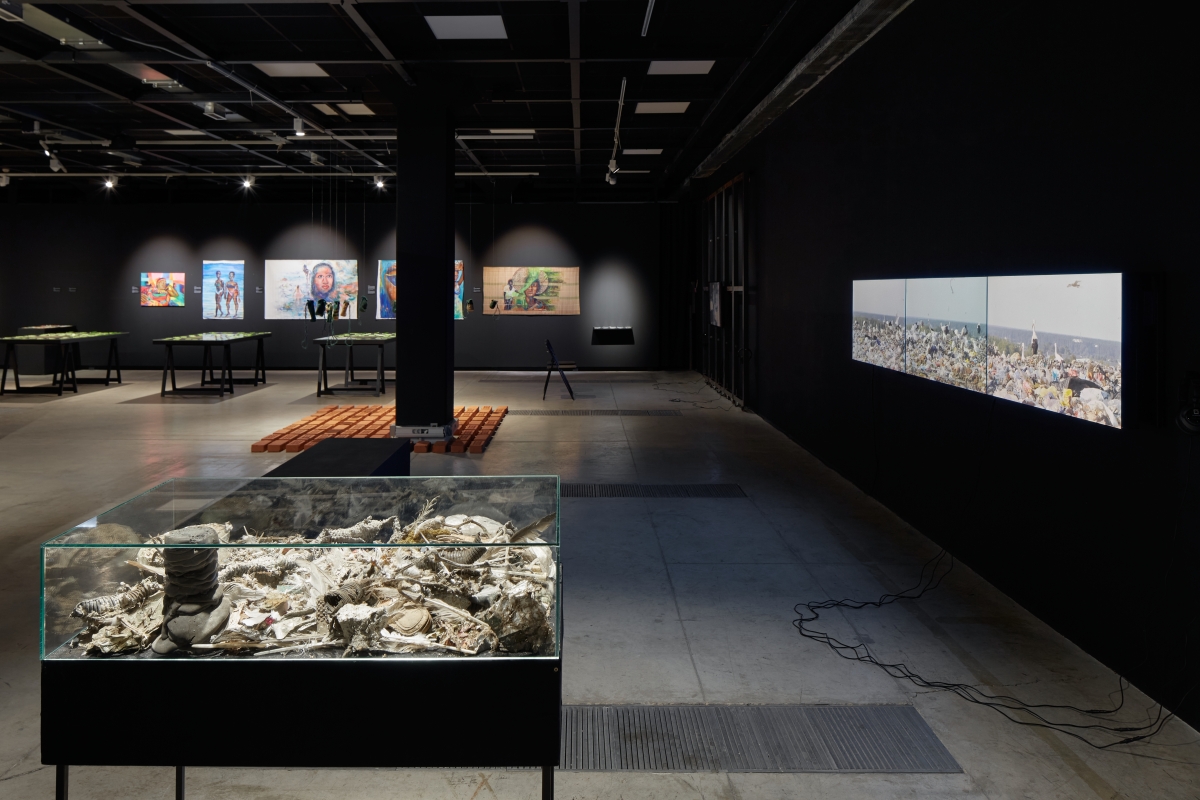
Diana Lelonek. ‘Decolonial Ecologies’ at Riga Art Space. Photo: Madara Kupla

Diana Lelonek. ‘Decolonial Ecologies’ at Riga Art Space. Photo: Kristīne Madjare
Diana Lelonek’s Storks, a Sacred Bird also has another thread of decolonial potential. The video installation documents the surroundings of the Getliņi landfill in the suburbs of Rīga. We learn that open dumps have become permanent resting and feeding places for storks in Latvia, Estonia and Finland (as well as for other kinds of birds, of course). As human habits and economic practices change, there have been corresponding changes in the storks’ eating habits. The author construes the storks’ diet at Getliņi as a fast food addiction, pointing out that it is unclear what effect the EU plan to close open dumps will have on the storks’ survival. As the ‘decolonial’ has been introduced into the exhibition, the story of Curaçao is right next to it, and watching the storks, it is impossible not to think that, along with other migratory birds, storks have literally joined us with colonised lands and their ecosystems for centuries. White storks, which we usually see as ‘ours’ (the cultural meaning of storks is also one of the storylines of the work), fly here from East Africa: Ethiopia, Kenya, Somalia and Tanzania; while some are thought to winter in South Africa, and others closer to us in Turkey. If we wish to keep track of the changes in the diet of ‘our’ storks, we should consider the whole route. Whereas the European Union plans to close open dumps across its territory, many African countries, including for example Kenya, with which we share our storks, still accept tons upon tons of Western waste. It is true, however, that in the case of Kenya, the greatest exporter is the USA, whereas waste from European countries is exported to Turkey, India, Egypt, Pakistan and other countries.
The decolonial turn could mean assuming the stork’s point of view, finally seeing them as truly our own, not merely in the sense of a sentimentally national belonging, in what they mean to our folklore and landscapes, but also in the sense of practical caretaking, taking an interest in ecosystems, which includes waste management, the culture of land reclamation, and transformations of socialism/capitalism across the stork’s entire route. The decolonial fantasy could reach even further. Let us imagine school curricula which, in addition to national history, look at so-called ‘world history’ from the stork’s perspective, and not only as European discoveries and conquests on the east coast of Africa, but also as a history written by the societies of those territories, including the history of resistance. Or we can picture Baltic foreign ministers on official visits to the USA discussing sanctions against Russia and gas deliveries, as well as pushing for a halt to exports of waste to Kenya.
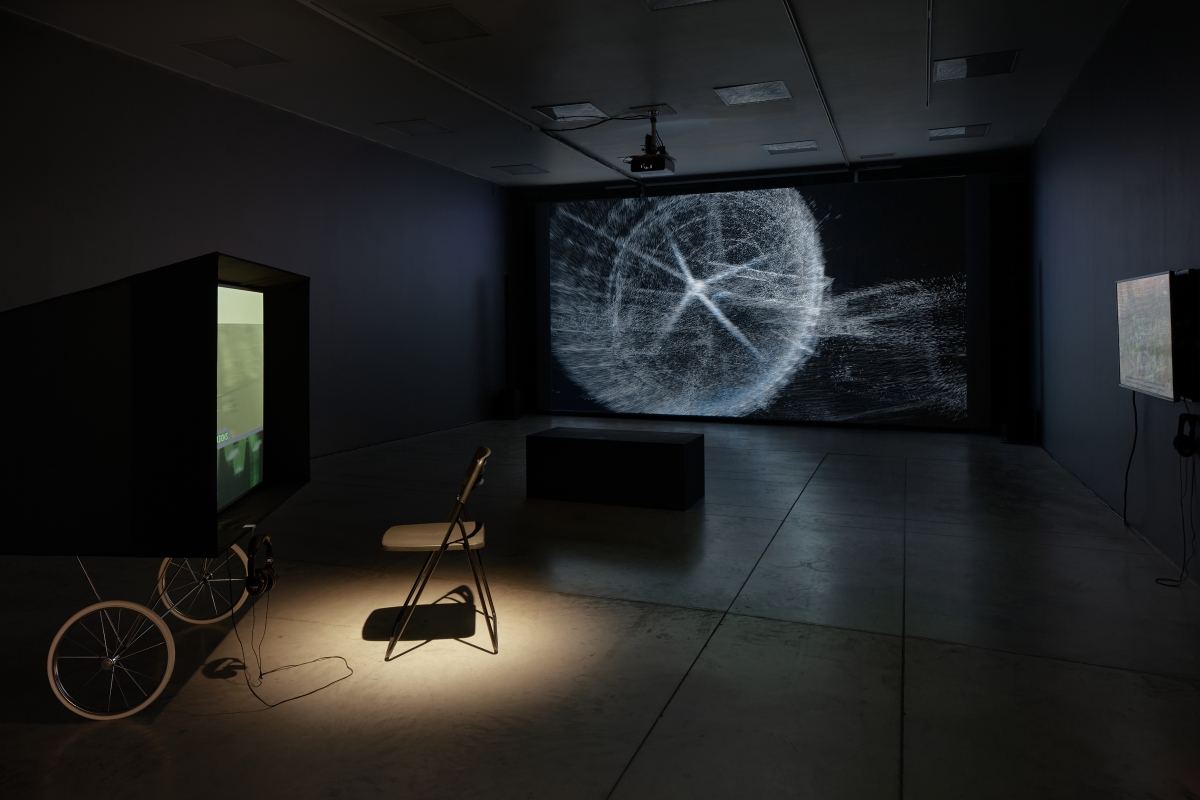
Rasa and Raitis Šmits. ‘Decolonial Ecologies’ at Riga Art Space. Photo: Madara Kupla

Rasa and Raitis Šmits. ‘Decolonial Ecologies’ at Riga Art Space. Photo: Madara Kupla
Rasa and Raitis Šmits’ Deep Sensing, which is on show in the exhibition, is also a suggestive work in the context of coloniality. It marks a renewal of interest in the Irbene Radio Telescope, built in the 1960s and formerly a grandiose object of Soviet military reconnaissance. The Šmits, who organised a legendary symposium on radio astronomy and sound art at the facility 20 years ago, focus their attention on the radar facility once again, by now with extensive experience in data and research-based art, with their current outlook informed by Bruno Latour’s ideas on terrestrial togetherness. The multimedia installation features both fascinating data visualisations, as well as an interview with a researcher who continues to collect and analyse the data obtained with the radio telescope. This reminded me of two other instances when I thought about the Universe last year. One of these was an exhibition brief that the Space Research Centre which is being set up in Latvia published, with the goal of finding partners to carry out the project. Summarising the proposed exhibition, they write that: ‘Thousands of years ago, humans walked across mountains and deserts on foot; but a couple hundred years ago we built sailing ships in order to discover a new continent. Now we’re making spaceships to continue our expansion.’ The wording the Space Research Centre uses captures the colonial outlook with an almost caricature-like precision, with history presented as a linear story consisting of conquest and expansion, where the ‘we’ that ‘develop’ and conquer actually means a very specific and limited part of civilisation, even though it is portrayed as representing humankind in its entirety. We may oppose the war in Ukraine, but we can still hope that it will be us who will be taking over the controls in the conquest of space. Meanwhile, a couple of months later, a truly grandiose event in space research swept over the world, with the publication of the first data from a new kind of telescope. I was fascinated by the unbridled joy, elation and awe that showed on the faces of astronomers from different countries and of different ages as they explained the significance of the event to the media. Unable to suppress their joy and elation, and complementing each other’s remarks, they spoke of the limitless research opportunities this new instrument promises, and also of its greatest benefit, its ability to look into the unbelievably distant past. The chief boon of this ingenious invention is in providing us with the ability to access information about events that took place billions of years ago in the Universe, unprecedentedly close to the Big Bang.
This is what I remembered the moment I heard what the researcher at the Irbene radar facility replied when asked whether the Irbene Radio Telescope could be used to learn about civilisations other than our own. The researcher said that the sheer volume of data makes this highly unlikely, in fact, close to impossible. And the general atmosphere in the room provided me with a sort of a peace of mind at the close of the ‘Decolonial Ecologies’ exhibition: the inability to ‘develop’ and employ this relic of Soviet military ambitions at full blast in hitherto unconceived directions is, in all likelihood, good news, and will remain so for as long as we still need more time, exhibitions, theories and practice in order to decolonise the way we think.
Exhibition ‘Decolonial Ecologies’ curated by Ieva Astahovska and organised by the Latvian Centre for Contemporary Art (LCCA) was on from 2 November 2022 to 15 January 2023 at Riga Art Space.
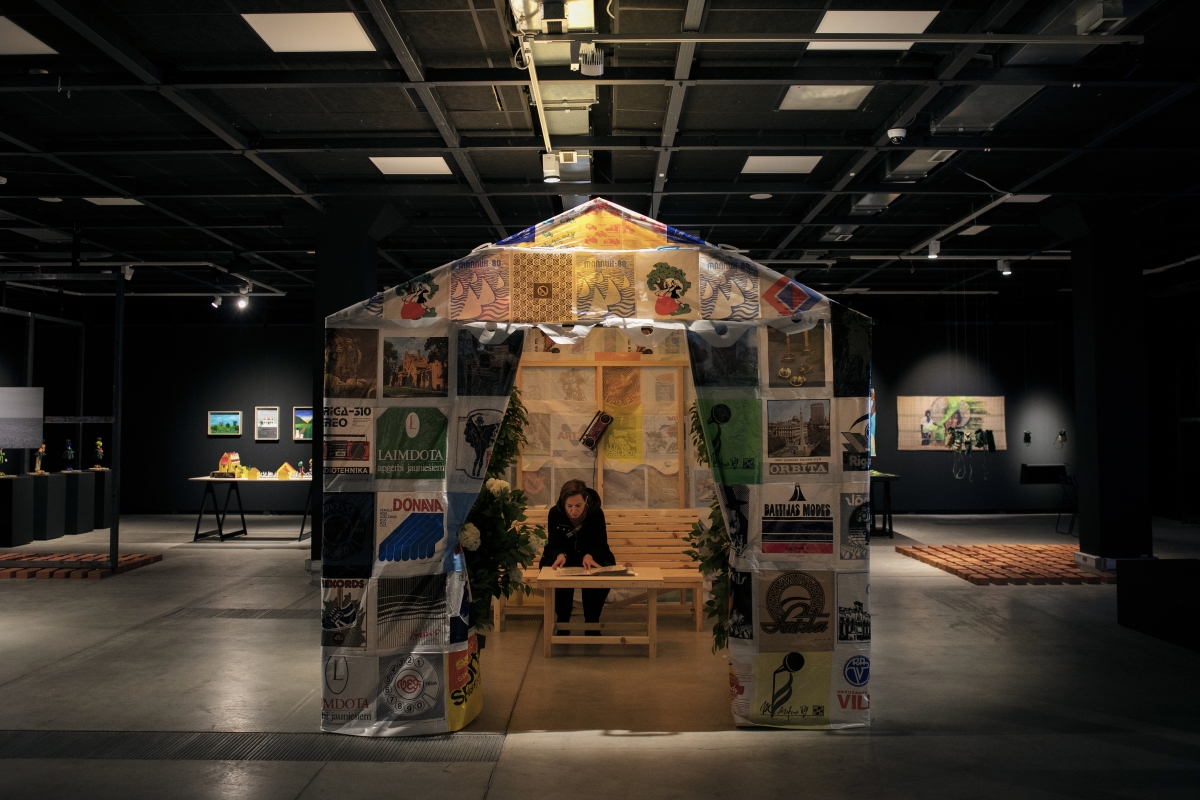
Exhibition ‘Decolonial Ecologies’ at Riga Art Space. Photo: Kristīne Madjare

Exhibition ‘Decolonial Ecologies’ at Riga Art Space. Photo: Kristīne Madjare
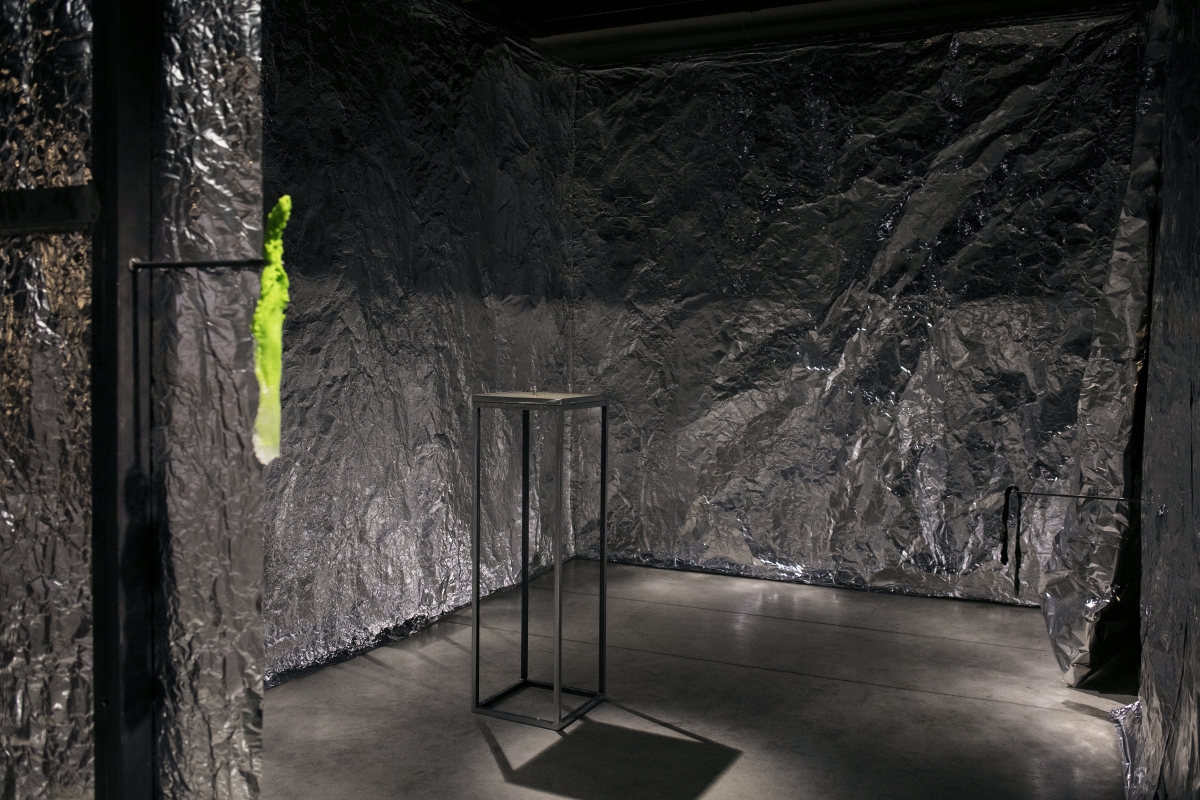
Exhibition ‘Decolonial Ecologies’ at Riga Art Space. Photo: Kristīne Madjare
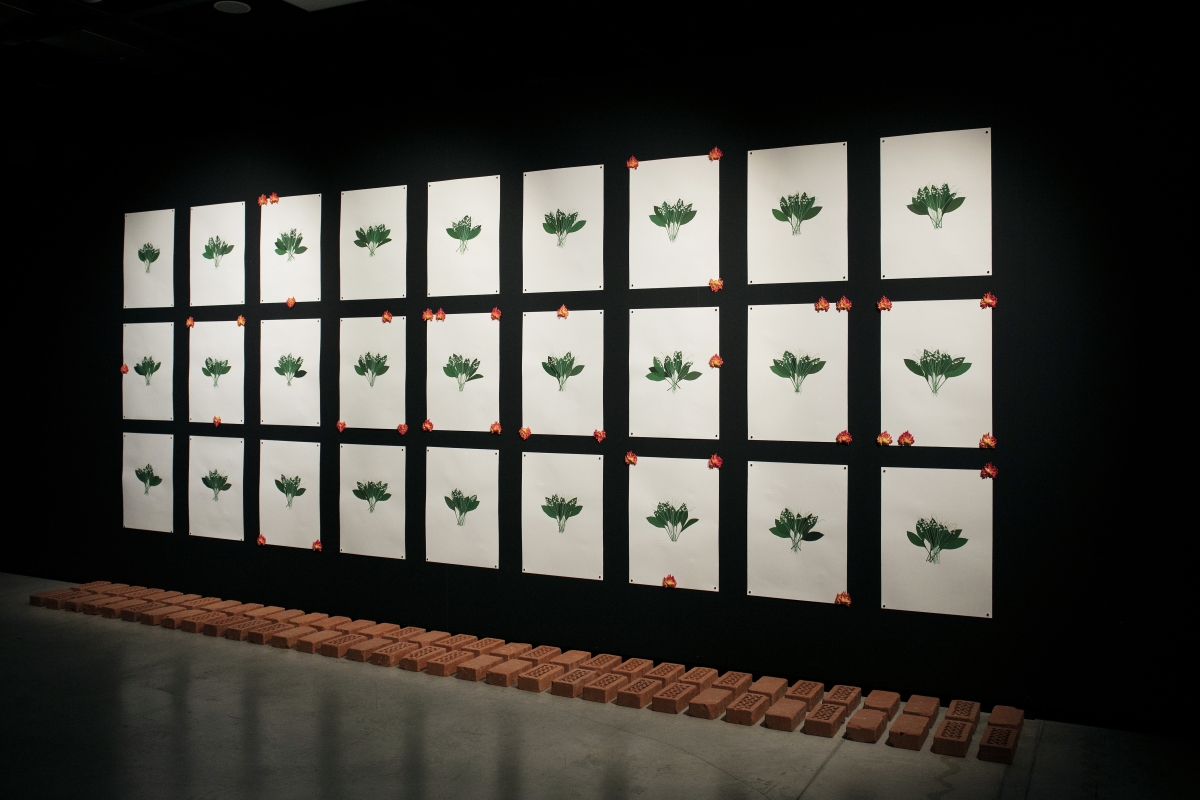
Exhibition ‘Decolonial Ecologies’ at Riga Art Space. Photo: Kristīne Madjare
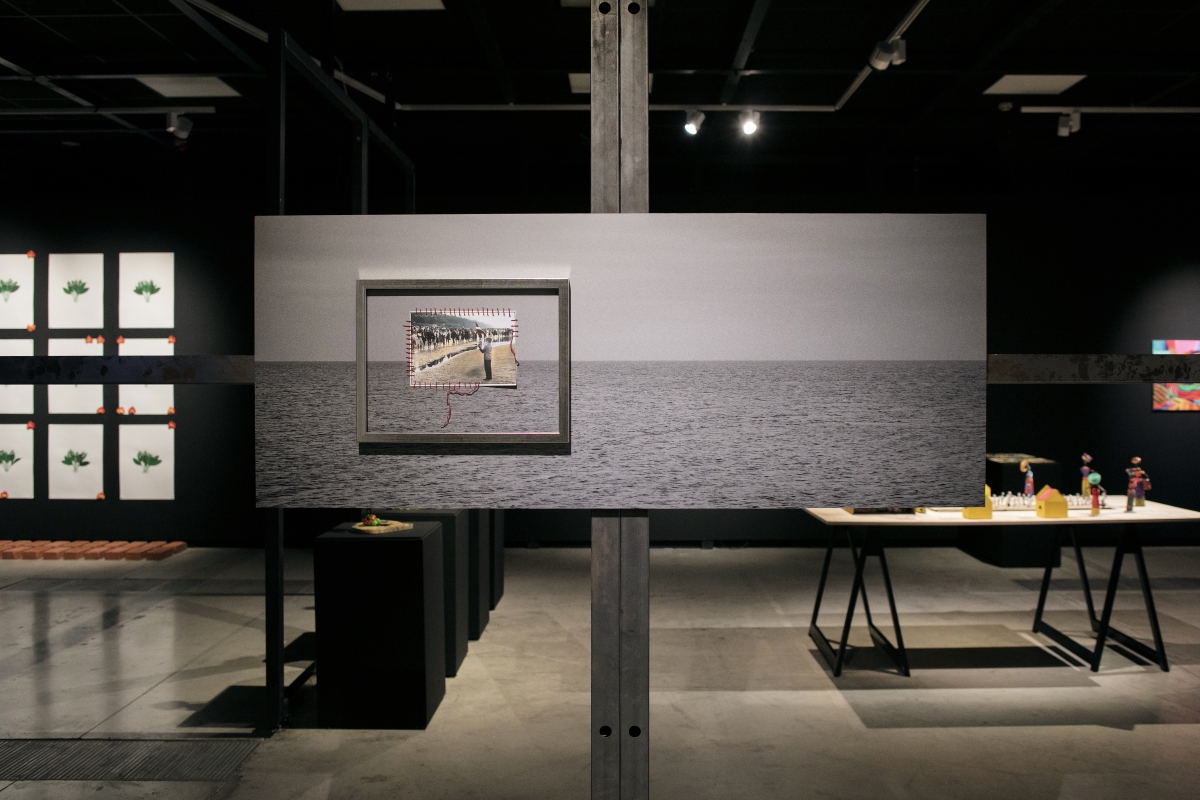
Exhibition ‘Decolonial Ecologies’ at Riga Art Space. Photo: Kristīne Madjare

Exhibition ‘Decolonial Ecologies’ at Riga Art Space. Photo: Kristīne Madjare

Exhibition ‘Decolonial Ecologies’ at Riga Art Space. Photo: Kristīne Madjare

